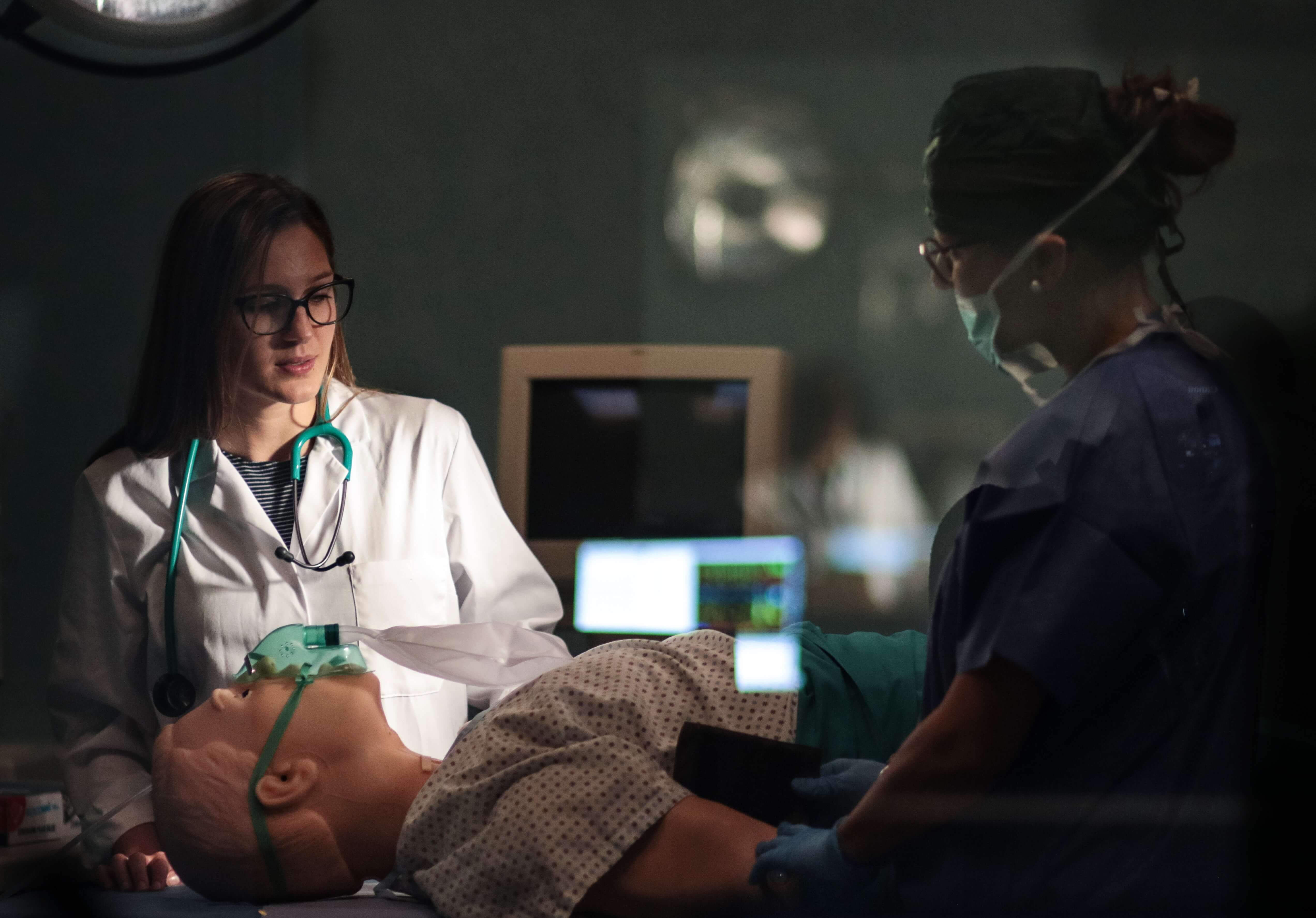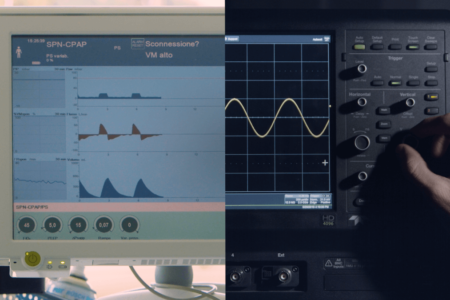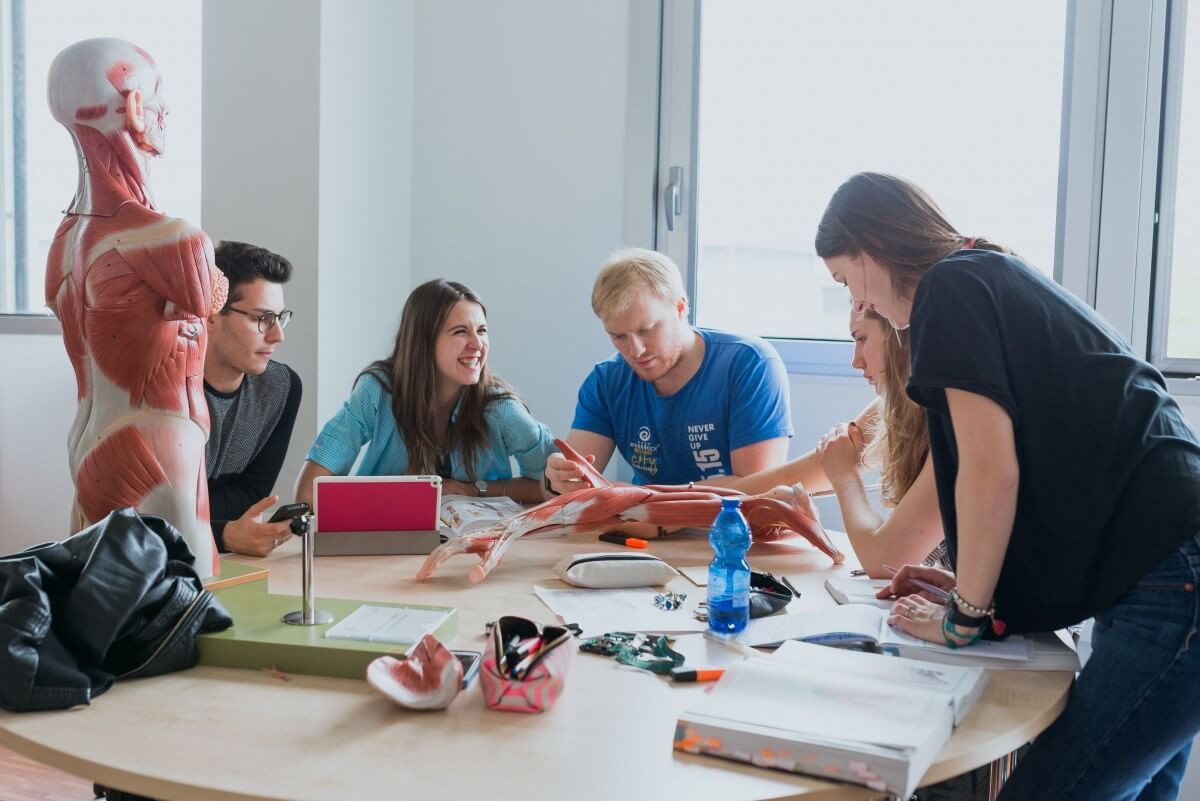Pierpaolo Casamassima, 23, was an accomplished, trained violinist at one of the leading conservatoires in the world before he hit a personal fork in the road. Realizing his true passion lies in science — specifically, the study of the human body — he sought to enroll in medical school back home in Italy. Around this time, he received an email from his brother about MEDTEC School — one that would turn out fateful for Casamassima. “MEDTEC School was an even better course for my objectives than a traditional medical degree, because of how interestingly it combines applied science and technology to the pure clinical aspect of medicine,” he shares. “Besides, it really projects students into the future of medicine by exposing us to new advances in this field.”
Today, Casamassima is part of one of the most innovative STEM programmes in Europe today: MEDTEC School’s six-year degree in Medicine and Biomedical Engineering. It is entirely taught in English, run by Humanitas University in partnership with Politecnico di Milano. With courses covering precision medicine, big data, AI, nanotechnologies, surgical robots, 3D printing and bio-prosthesis, graduates are set to become tech-savvy, future-ready clinicians. Upon completion, they will obtain additional ECTS and be awarded a Bachelor’s Degree in Biomedical Engineering from Politecnico di Milano, in addition to an MD in Medicine. Most importantly, they will possess the unique know-how to treat patients through the management of technological developments in medicine and related sectors, including disease prevention and treatment, patient rehabilitation and the development of innovative diagnostic and therapeutic solutions.

Source: Humanitas University
The journey to this is replete with inspiring classes. Last September, despite a pandemic, Casamassima got to spend a week at the Humanitas San Pio X hospital, an unforgettable opportunity for the Puglia native. “I will never forget the first time I entered an operating room, it was such an exciting moment! Having a sneak peak into what will be our daily job was invaluable,” he shares.
With safety measures in place, he got to visit one of the campus research laboratories too. Casamassima, who gets excited around toy microscopes, realised a lifelong dream to be around the extremely advanced laboratory equipment that the facility offers. He also learned how to carry out a Polymerase Chain Reaction with DNA samples, his first hands-on experience in a biotechnology setting. “I was so happy to realise that the university I study in gives access to some of the most advanced research technology available, because I know that this can make the difference in what I can achieve in my future career,” he explains.
Many classes are now online in view of pandemic-related public health measures. In lesser prepared medical schools, this would be disadvantageous. This isn’t the case for MEDTEC School, whose strong sense of community allows it to provide education as good as before, or better. Lectures, laboratories and exams have continued. “At the beginning of online classes, I thought all of this was not going to be possible from our homes, but both Politecnico di Milano and Humanitas University have been working very hard to build an online environment that ensures cooperation and efficiency for us all,” he shares. “I cannot wait to be back to class with my classmates who I really miss, but I’m positively surprised by how much I have learned from home despite all.”
There is a lot waiting for Casamassima and his classmates when they return to campus and when the city fully reopens. Humanitas University is located just 13 kilometres from Milan city center. In Italy’s capital of fashion and design, there is a bar designed by film director Wes Anderson, excellent museums — from the Pinacoteca di Brera to the Triennale Design Museum — landmark cathedral square Piazza del Duomo, historic canals and numerous rooftop pools for refreshing aperitivos. “Milan is the perfect Italian city for a course like MEDTEC School, as it is a hub of innovation, research and state-of-the-art healthcare,” says Casamassima. “Living in Milan has been great so far, it is a very elegant and livable city. It isn’t too large and public transport can take you basically anywhere, as far as the Humanitas University campus in Pieve Emanuele, which is located just outside the city in the south.” He likes to go for walks by the Navigli or around Piazza Duomo. His favourite, so far, is Parco Sempione, saying, “I love going there for a peaceful walk, and the sight of Castello Sforzesco is invaluable.”
Humanitas University and Politecnico di Milano’s campuses are no less impressive. The former is home to modern buildings, state-of-the-art classrooms and a friendly vibe. “It all feels like a perfect city in which to have the best time while sharing moments with young students like me. A large portion of the students are international as most courses are taught in English, and a variety of language courses are available for students,” Casamassima explains. “As for life in Politecnico di Milano Campus Leonardo, the whole environment is completely different as it gives off urban vibes: busy streets, shops, and public transport are all around you as soon as you step out of classes. There is a selection of study places, but my favourite is the campus library, I find it so academically inspiring and it is the perfect place to be productive.”
Applications for the academic year 2021-22 are now open, with 60 places reserved for EU students and 10 places for non-EU students. The multiple-choice test in English, lasting 100 minutes, will take place online on March 12nd, 2021. It will include questions on mathematics, verbal logic, physics, chemistry, biology, technical-scientific culture. The test is designed to capture the aptitude and propensity of candidates to study both hard science for Engineering and Life Sciences for Medicine. Learn more here.
Follow Humanitas University on Facebook, YouTube, Instagram and LinkedIn













